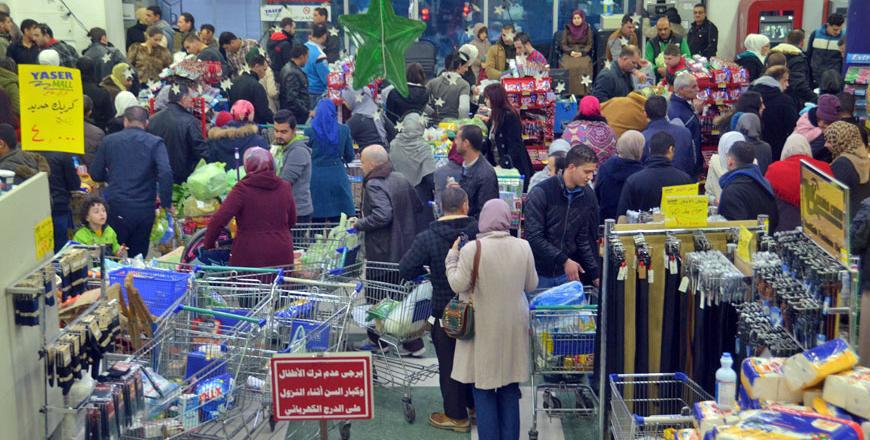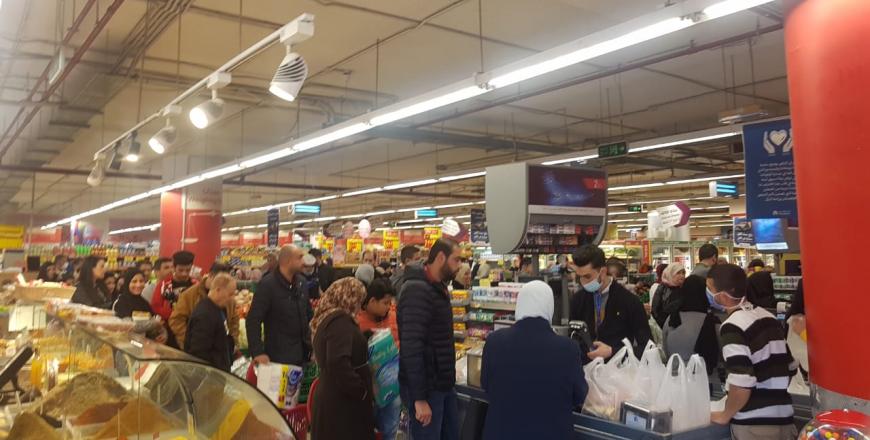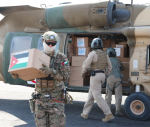You are here
Authorities reassure public of ample supplies, stocks amid ‘panic buying’
By Maram Kayed - Mar 15,2020 - Last updated at Mar 15,2020

In this file photo, shoppers buy goods at an Amman mall (JT file photo)
AMMAN — Following a public rush to buy and secure commodities after the government announced a new set of protective measures against the novel coronavirus, the government and experts cautioned people against “unnecessary” panic.
“We all saw the panic and hoarding of food last night after the government announced its latest measures to battle the spread of the coronavirus. I assure you, no such measures are necessary,” said Prime Minister Omar Razzaz in a voice recording directed at the public.
Razzaz stressed that the Kingdom “has sufficient, and indeed more than sufficient, amounts of food and medicine”.
He noted that the suspension of passenger flights has not affected commercial trade and that shipments of food, medicine and commodities via air, sea and land are still coming in.
The prime minister also noted that the Kingdom’s local factories are still operating, adding once more that “a shortage is highly improbable”.
The prime minister said that, while every person has a right to buy what they need, there are three main issues to keep in mind.
The first issue is that flocking to supermarkets and stores is conducive to spreading the virus.
Mahmoud Shboul, a doctor of respiratory diseases, told The Jordan Times over the phone that the collective rush to malls and supermarkets on Saturday “should be the cause of real panic”.
“The government has suspended Friday prayer, which usually does not have more than 50 people in one mosque, to halt the spread of the virus, so one can only imagine the real risk that a crowd of more than 1,000 people at a mall can pose,” he said.
Shboul also noted that more than one person touching an unsterilised commodity is also a problem that mass shopping poses to public health in the midst of an outbreak.
The second issue Razzaz noted is the hoarding of food that has a short expiration date, which he said is a “wasteful act and harmful to both individuals and society”.
A sudden surge in demand leading to a surge in prices is the third problem, which he added is also “harmful to individuals and the economy”.
Economist Maen Qatamin told The Jordan Times over the phone that Saturday’s events marked Jordan’s first instance of “panic buying”, which he said “will unquestionably lead to an increase in prices” if the phenomenon continues.
He noted that to “stop the abuse of the supply and demand chain, the public needs to rest assured that the spread of the virus has ceased, as well as find that each time they visit a supermarket, groceries are available in abundance”.
“If, like Europe, the Kingdom is placed on total lockdown, the trend will only continue and grow bigger,” Qatamin warned.
Razzaz concluded his recording with a promise: “As a government, we vow to keep production and exports ongoing, hoping that our educated, aware citizens will continue to keep this in mind.”
Related Articles
AMMAN — Amidst increasingly stringent measures imposed by the government in its fight against the spread of COVID-19, some people “seem to s
AMMAN — Chairman of the Amman Chamber of Commerce (ACC) Khalil Haj Tawfiq on Wednesday urged the public to refrain from stockpiling food and
AMMAN — Head of the General Association for Foodstuffs Merchants of Jordan (GAFJO) Khalil Haj Tawfiq on Saturday called for setting up a mec

















